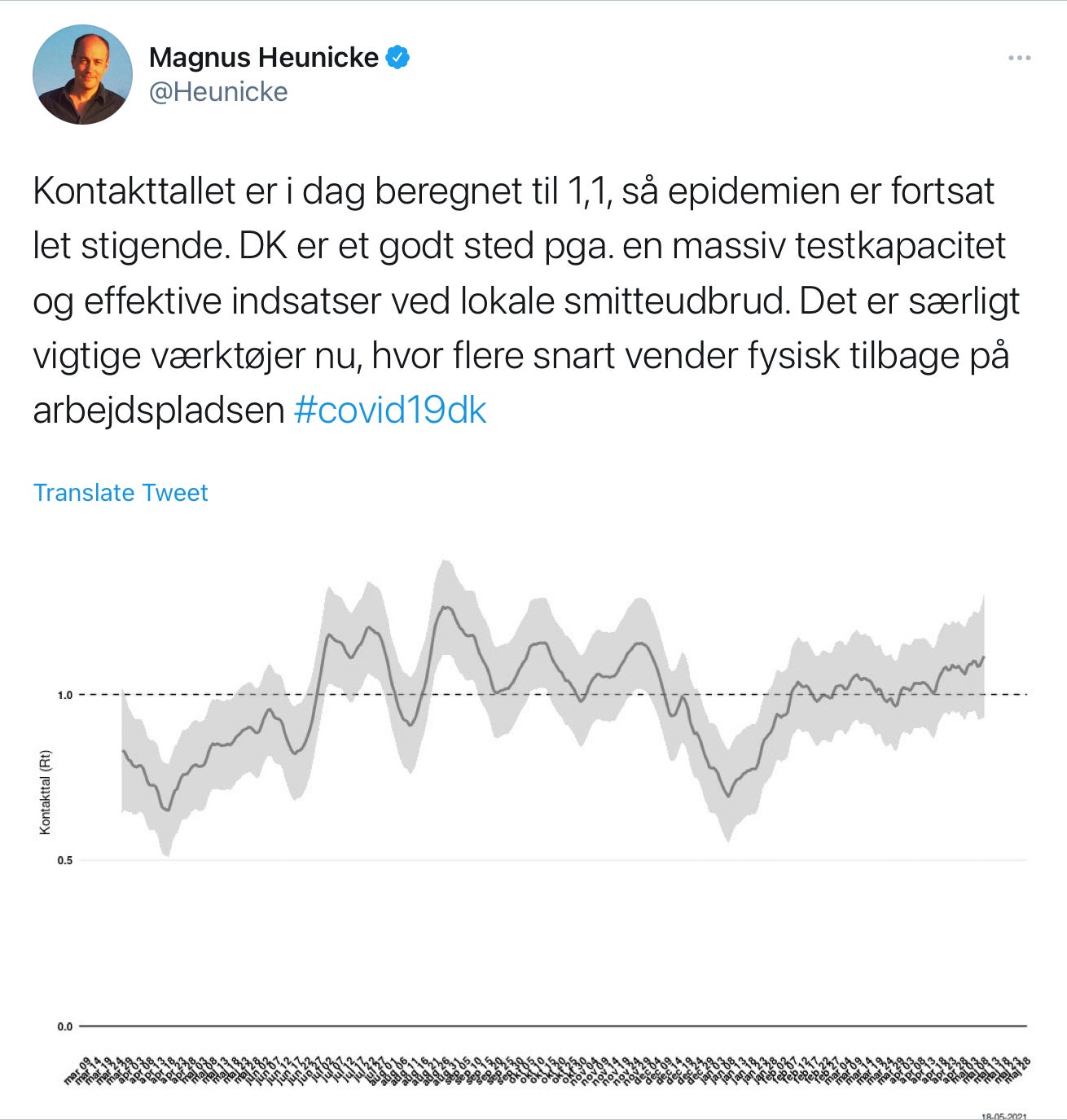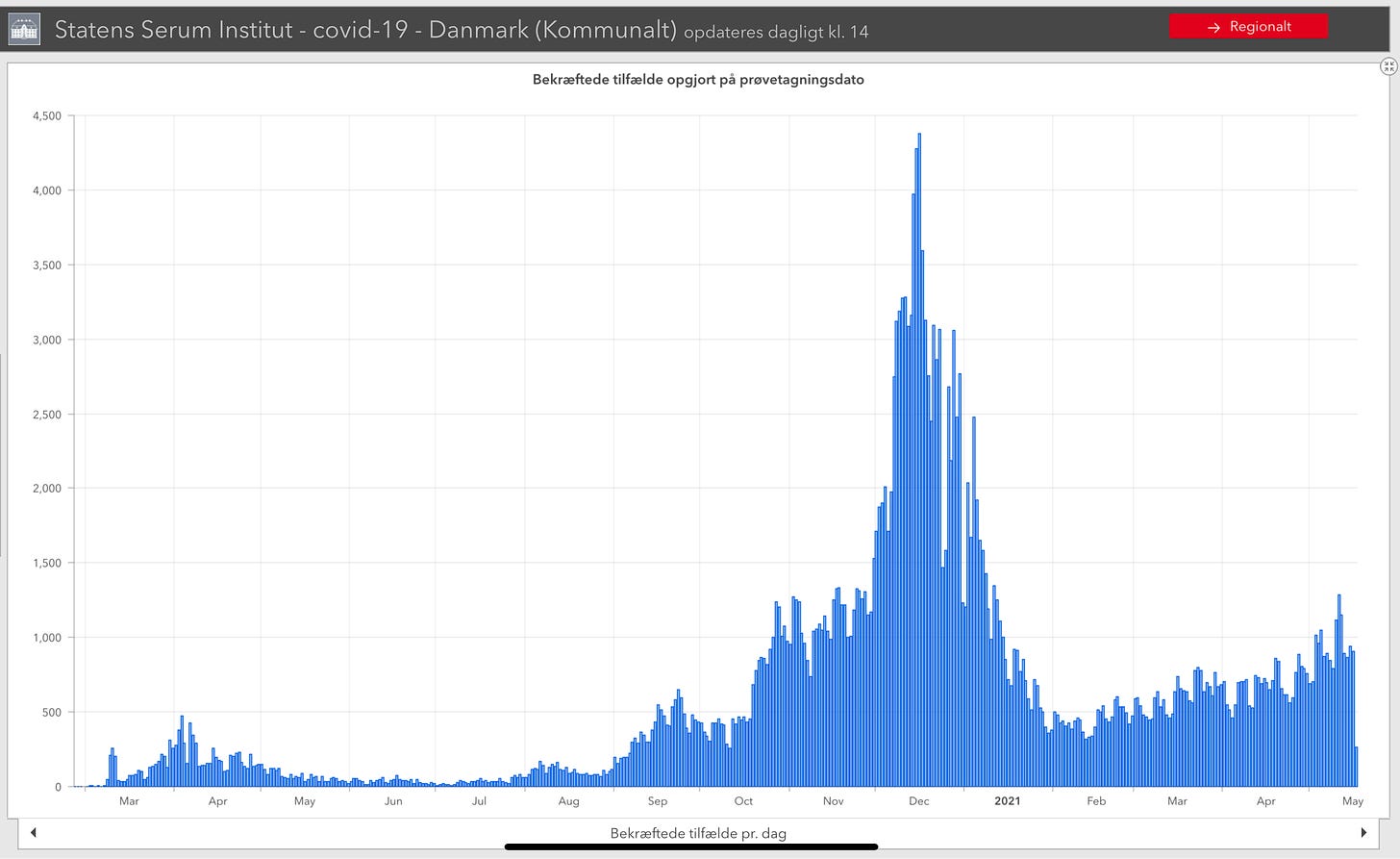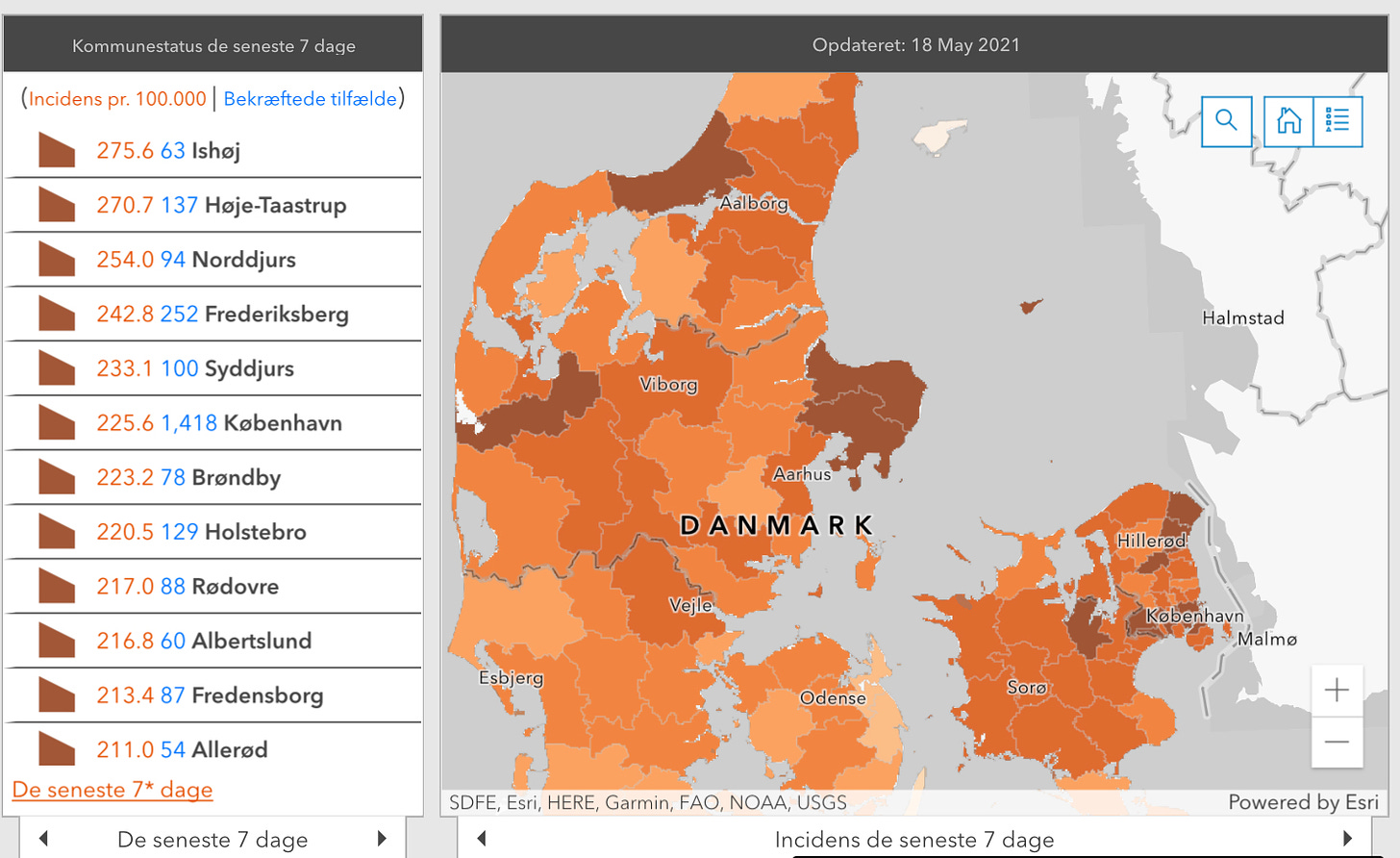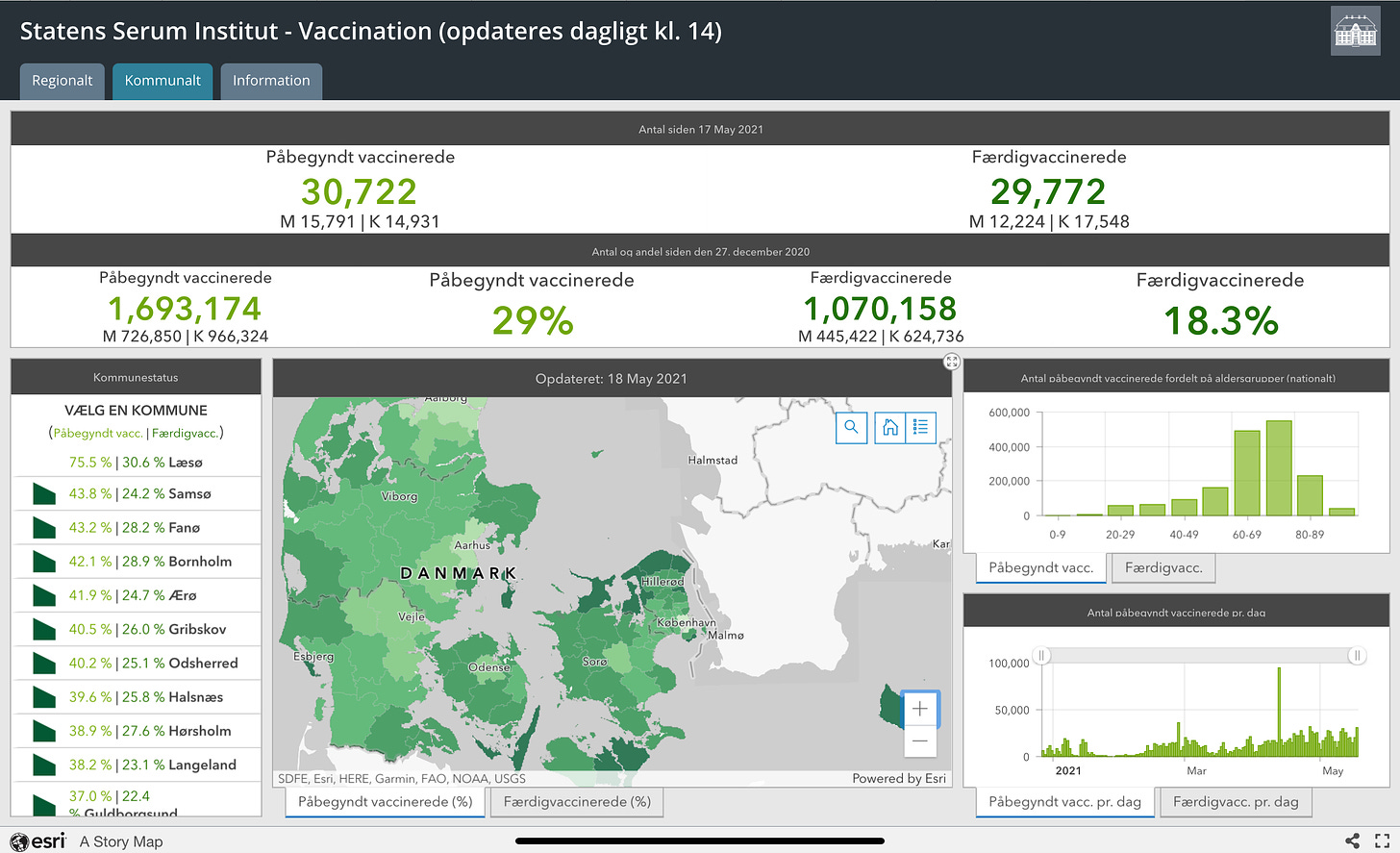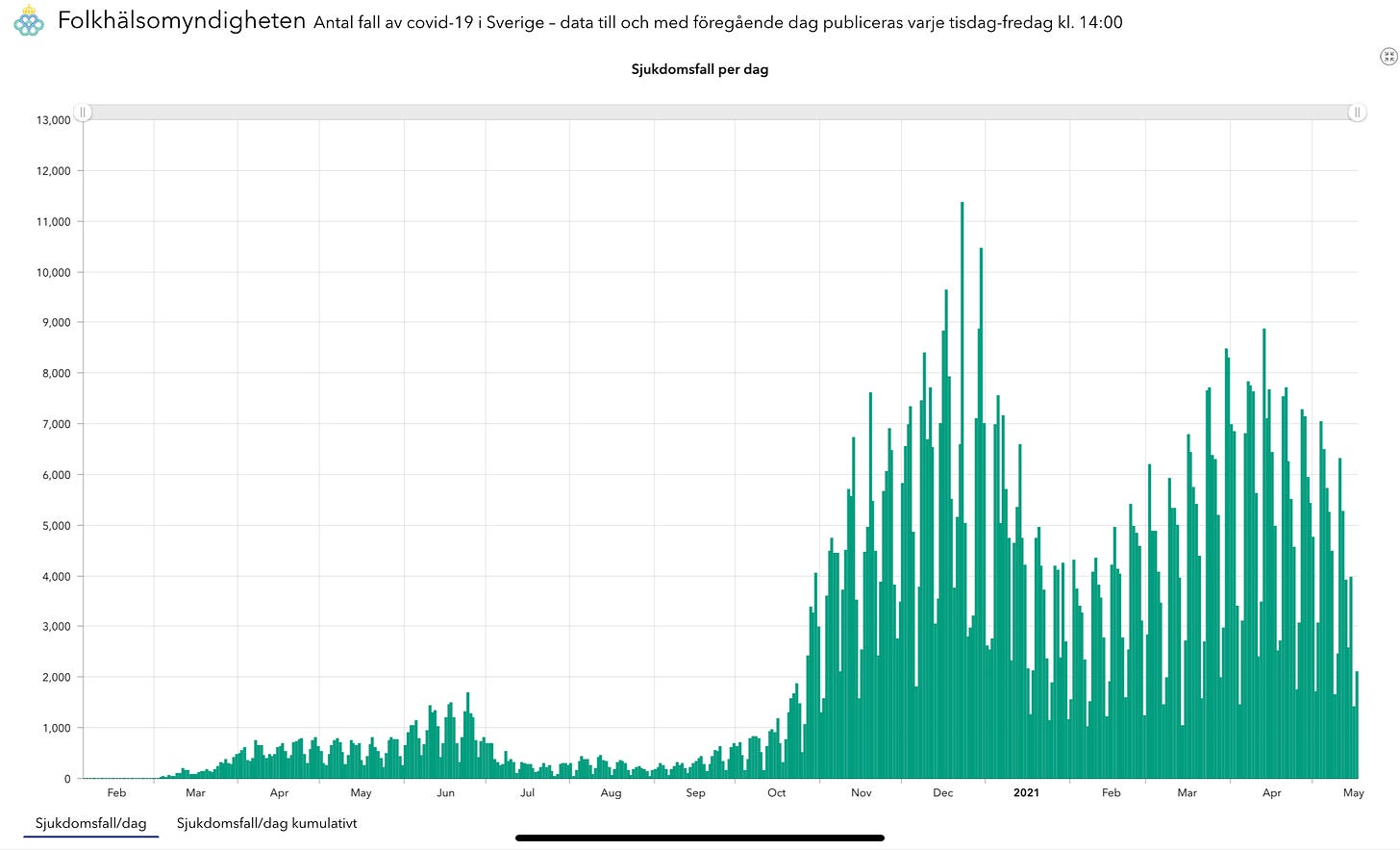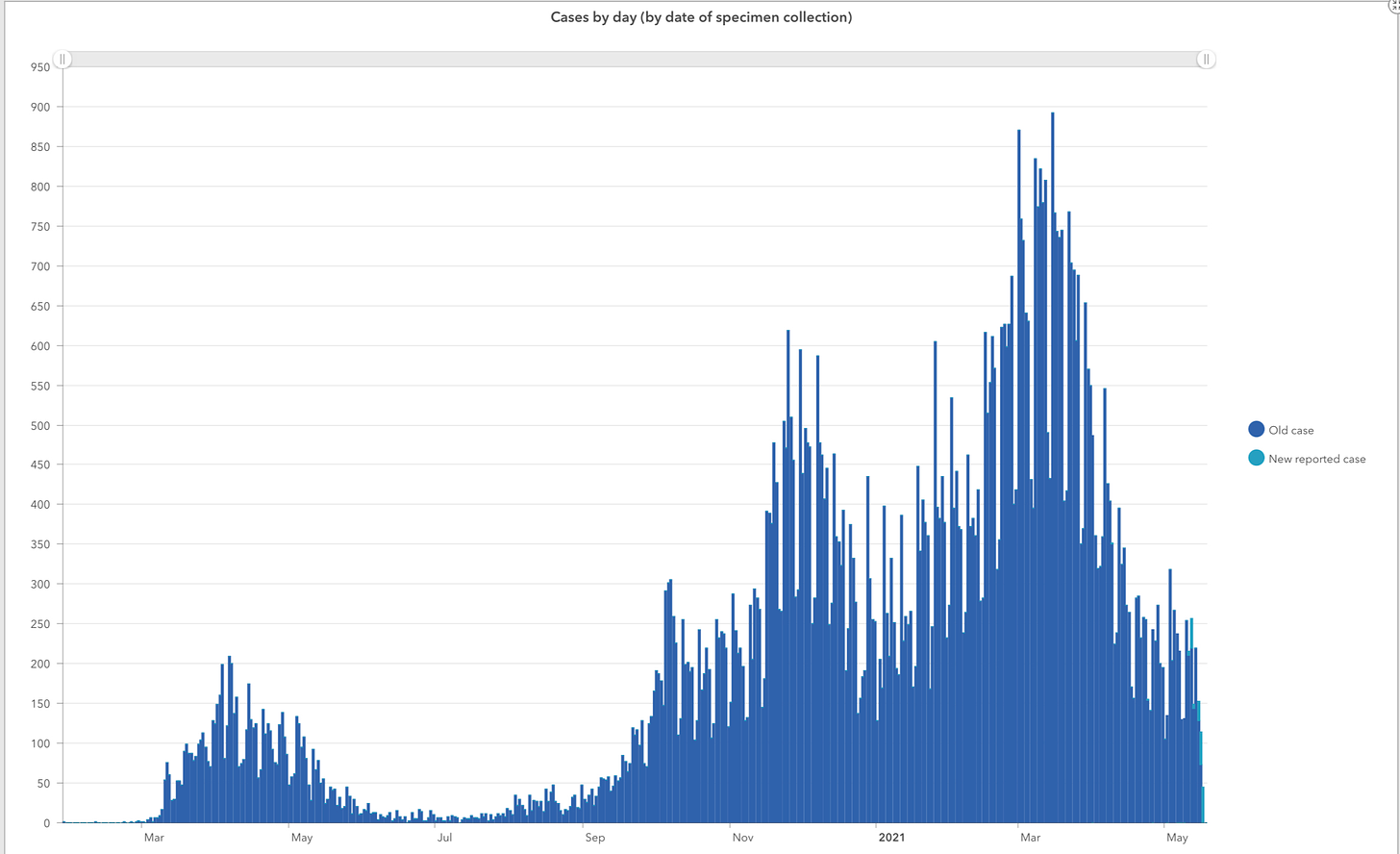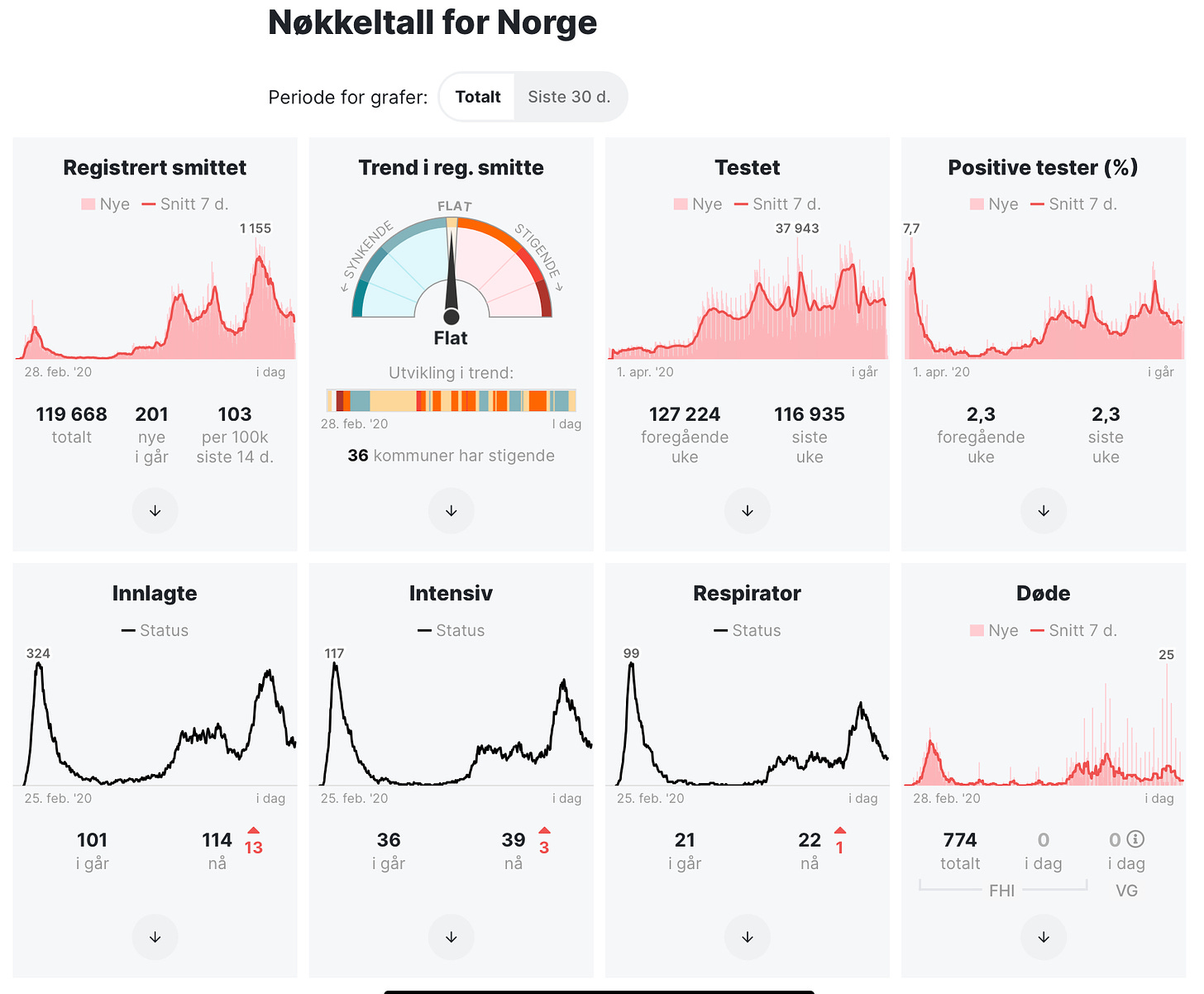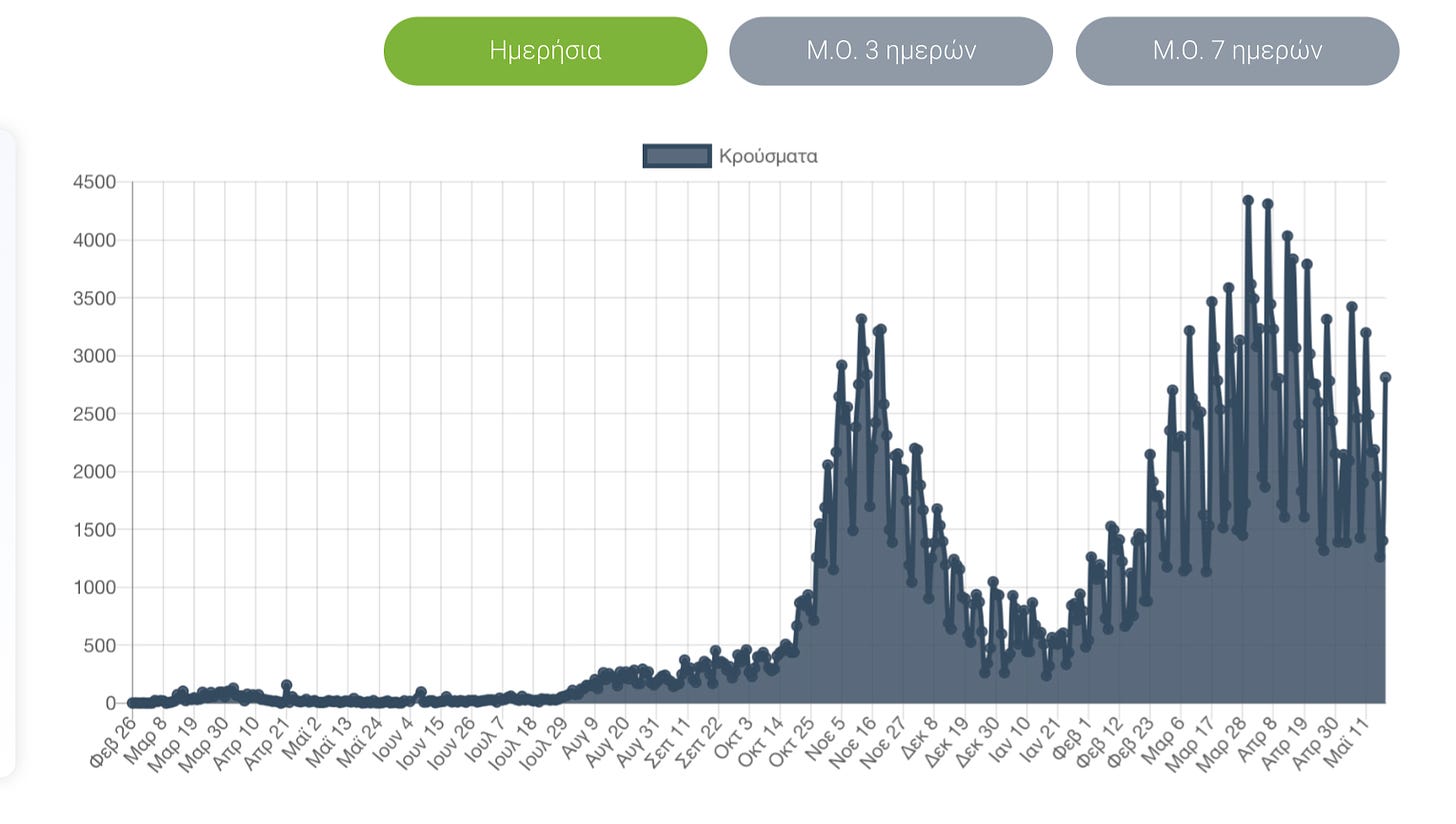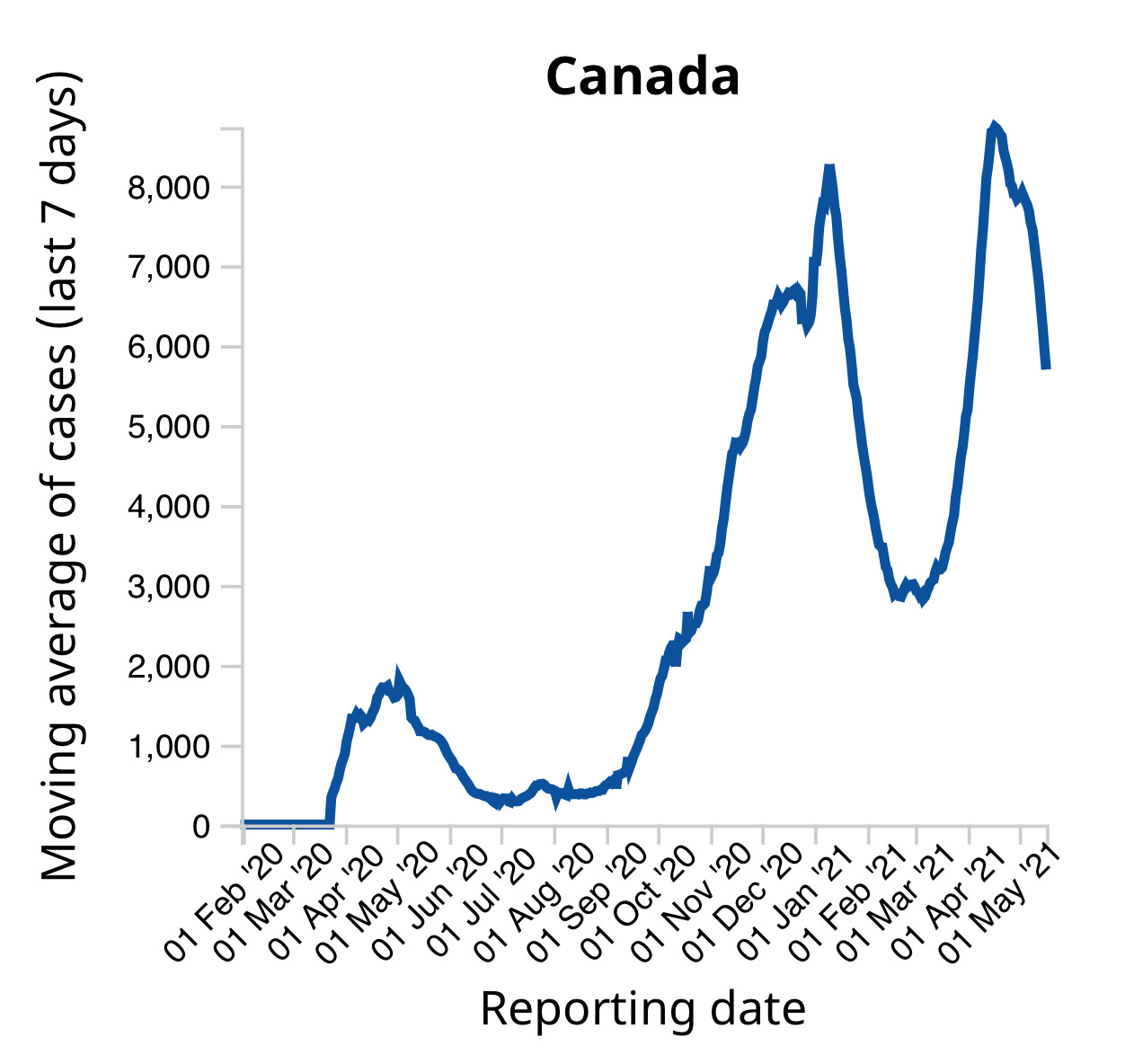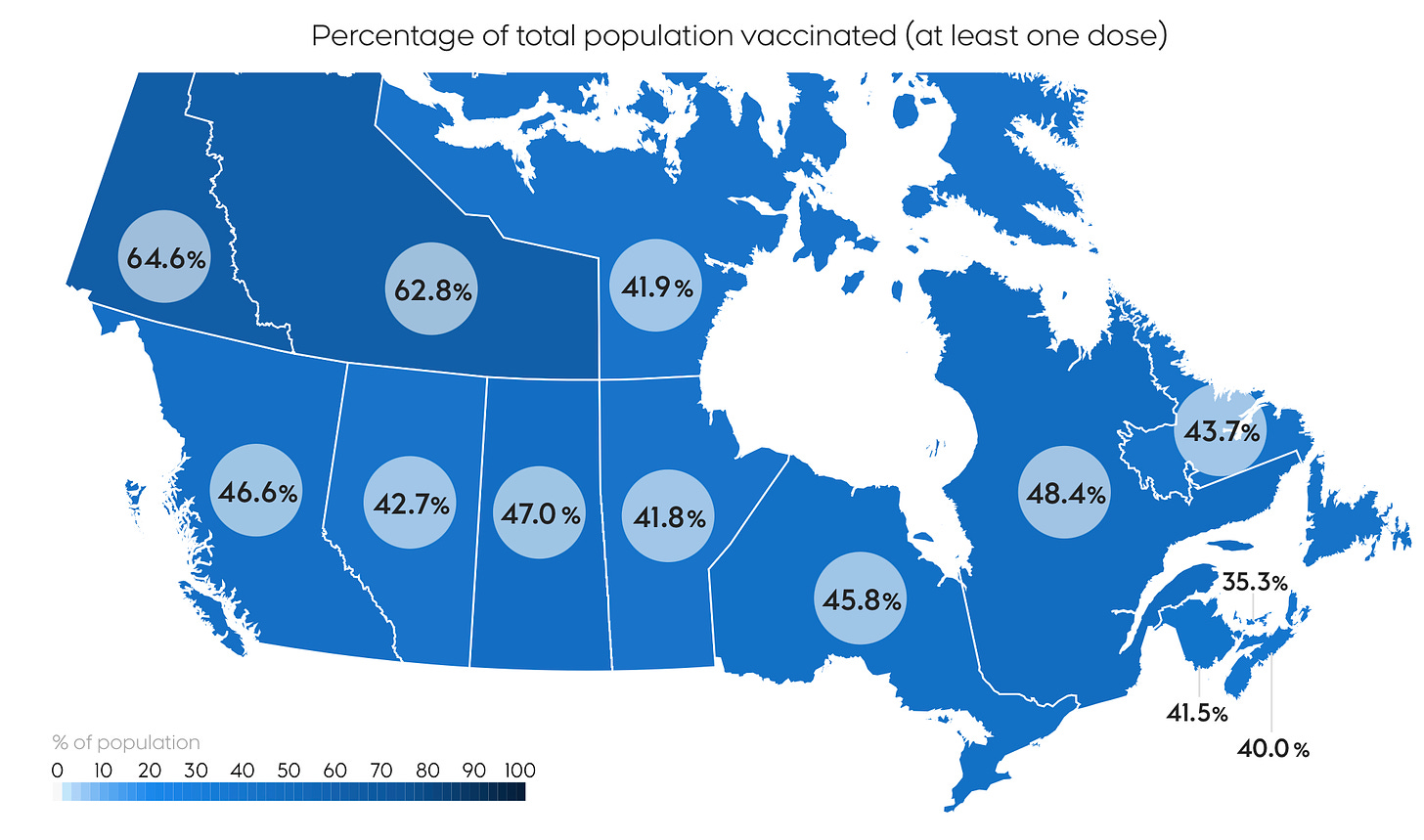🇩🇰
Danish Health Minister Magnus Heunicke says the coronavirus contact number (reinfection rate or R0) is at 1.1 for a 3rd straight week. He cautions that “the epidemic is still rising slightly.” However, he adds that Denmark is in “a good place due to a massive testing capacity and effective efforts in the event of local outbreaks.”
-
The Danish National Health Board has reassessed how long a person has immunity both after vaccination and having recovered from the coronavirus. It says in both cases based on the best evidence available immunity lasts for at least eight months.
Health officials caution that COVID is a new disease and there is still a lot we do not know about how it affects the immune system. That means the basis for assessing immunity is limited. However, new data is coming in all the time and our knowledge base will constantly have to be readjusted.
National Health Board Deputy Director Helene Bilsted Probst:
"It is gratifying that the latest research confirms our expectation that the immunity after infection is longer lasting. With what we know about the effect of the vaccines, it is also our assessment that the vaccines will provide at least as long-lasting immunity. We follow the research closely and expect that the immunity may be even longer than 8 months.”
The reassessed timeline for COVID immunity is raising questions about when exactly booster shots may need to be administered.
"It is still too early to say anything about the need for revaccination, but it is of course an area that we will follow closely.”
The health agency says there are studies underway now involving vaccinated individuals that will provide further information on vaccine efficacy and length of immunity.
The change in how long someone is considered to be immune after vaccination or having recovered from COVID will now be incorporated into the coronapas.
-
Denmark’s Staten Serum Institut has advised the government that recent infection increases are reflection of recent reopening but are within expectations. The Institut was asked for its two cents in relation to the new agreement reached last night by a majority of political parties for a broader reopening next week.
You can read the details of the agreement and what it means for May 21st and after in a story we filed earlier today in Informeret HERE.
The SSI cautions it is still too early to see any infection affect from the last phase of reopening on May 6th. It says infection activity is highest among those aged 15 to 29 years old with no sign of a secondary infection among those 60 and older. It attributes this to the vaccination effort with infection activity now clearly concentrated among the younger unvaccinated age groups.
However, SSI Director Henrik Ullum does caution that the further reopening will result in more coronavirus activity.
“We have said that this reopening has a high risk. There is a risk that infections will increase, and that we will therefore use the very efficient system of local shutdowns to a greater extent.”
The agency concludes that the epidemic is under control in Denmark despite rising infection rates. The massive testing regime and the automatic lockdown mandate for municipalities is to thank for that.
-
Denmark is reporting 916 COVID infections with no new coronavirus deaths in the last day.
Yesterday there were 727,989 total corona tests done, 173,133 PCR and 554,856 rapid, for a (PCR only) positivity percentage of 0.53%.
The number of kommunes (municipalities) in Denmark with infection incidence rates exceeding 200 per 100,000 people has grown to 15. Ishøj in Metro Copenhagen is once again the infection hot spot in the country.
COVID hospitalizations (166) are down (-7) while the number of infected in an ICU (31) increased slightly (+2) and, of those, the number on a ventilator (23) has gone up (+5).
On the vaccination effort to date, 1,693,174 1st dose vaccinations (29% of the population) have been administered while 1,070,158 people (18.3%) are now fully vaccinated.
Yesterday 60,493 total vaccinations were done.
Health staff with the Sjælland Health Region were busy vaccinating everyone living on the islands of Orø, Askø, Omø and Agersø this week. Next week they will be vaccinating everyone on the islands of Sejerø and Fejø. And in week 22 it will be Femø’s turn. The health authority decided it was more efficient to vaccinate everyone on the small islands in one fell swoop rather than jump back and forth every time a new group was invited to get vaccinated.
-
Danish olympians will be vaccinated ahead of the summer games in Tokyo, Japan. In a press release the DIF says it has received 1,404 doses of the Pfizer vaccine to get the 702 athletes vaccinated.
CEO Morten Mølholm:
“We are very grateful for the vaccination opportunity, which minimizes the risk of infection during the games without affecting the Danish vaccination calendar in a negative direction, so this is an extraordinary donation.”
🇸🇪
Sweden has added 10,017 infections and another 26 corona deaths since its last update on Friday.
To date, 3,300,122 1st dose (40.3% of the population) and 1,020,493 2nd vaccine doses (12.5%) have been administered.
-
Radio Sweden is reporting that there are at least 20 confirmed infections involving the feared India variant in the country. It says while a majority of those infections are directly linked to travel, at least five are not, indicating some level of community transmission. The sub-type of the variant B.1.617.2 is causing alarm as authorities in the U.K, where is it is spreading very rapidly, have determined it to be more infectious than even the U.K. variant, which is already about 75% more contagious than the original coronavirus strain.
🇫🇮
Finland has registered 149 infections and had no new corona deaths since yesterday’s update.
COVID hospitalizations (137) are up (+5), while ICU number (25) are down (-2).
To date, 2,133,397 1st dose (38.3% of the population) and 291,296 (5.2%) 2nd vaccine doses have been administered.
-
Finland is lifting the quarantine requirement for some people who have been in contact with an infected person. The Finnish Health Institute says unless a doctor specifies otherwise, quarantine requirements are lifted for anyone who is fully vaccinated, with at least one week after the second dose. Also, anyone who has had COVID in the last six months, and those who have had the coronavirus and at least one vaccination dose are also no longer required to isolate.
The health institute encourages people with one or both vaccination doses to continue to wash their hands, wear a mask, and follow all guidelines to protect themselves.
🇳🇴
Norway has added 231 infections with no new corona deaths since yesterday’s update.
COVID hospitalizations (114) are up (+13), ICU numbers (39) also rose (+3). Ventilator numbers (22) are up (+1).
To date, 29.25% of Norwegians have one vaccine dose while 10.93% have had both.
-
The Norwegian Public Health Institute is welcoming yesterday’s change from the European Medicines Agency in ruling that unopened Pfizer vaccine doses can now be stored in a regular refrigerator for up to month. The vials up to this point required a special deep freezer and had to be used immediately when thawed.
Institute Director Geir Bukholm says this is a significant change.
“This is very good news that will contribute to much easier distribution and use of the vaccine from Pfizer. Not least of which, the municipalities' vaccination work will be be much easier. Extended storage time in refrigerators will make it possible for municipalities to vaccinate throughout the week. Furthermore, there will be less chance of vaccine waste.”
🇩🇪
The DPA news agency is reporting that two apartment blocks in western Germany near Düsseldorf have been sealed off and the 189 residents inside quarantined. The extreme measures are being taken due to fears of the India variant. Everyone in the buildings is being tested, with 19 positive results so far. However, only one of them came back as the India variant.
-
In Germany, children as young as six are required to wear a mask when inside public spaces etc. But the requirement specified they could only wear a FFP2 mask. The German health ministry says that mandate is now being dropped and the legislation changed to allow kids to wear the regular blue surgical masks instead.
🇦🇹
Austria is going to join Denmark and Norway in punting the AstraZeneca vaccine. According to Die Presse, the move to shelve AstraZeneca in Austria is less about rare but serious side effects and more about frustrations over a lack of supply.
Unlike Denmark and Norway though Austria will continue to administer first dose vaccinations using AstraZeneca until next month. It will also offer everyone with a first dose a second AZ shot.
After that, the country will focus on Pfizer/BioNTech, Moderna, and Johnson & Johnson vaccines to inoculate its population.
🇬🇷
Elsewhere in the E.U., Greece reported 2,812 new infections today, making it a European COVID hot spot.
💉🦠
A glimmer of hope for those suffering from long-COVID. A study out of the United Kingdom seems to indicate that being vaccinated could alleviate some of the symptoms plaguing people months after recovering from the coronavirus. The survey, which has yet to be peer reviewed, was conducted by a group called LongCOVIDSOS. The study followed 812 people, mostly white females, who were suffering from long-COVID and then vaccinated. It found 56.7% experienced alleviated symptoms after vaccination, 24.6% were unaffected, while 18.7% said symptoms worsened after vaccination. The mRNA vaccines seemed to be much more effective at alleviating symptoms than viral vector vaccines like AstraZeneca. In particular, those who received the Moderna vaccine were more likely to see improvements in symptoms such as fatigue, brain fog and muscle pain, and less likely to report a deterioration, the analysis found.
The study results were reported in The Guardian.
🇨🇦
In a COVID update today, Prime Minister Justin Trudeau said Canada will receive nine-million doses of the Pfizer/BioNTech vaccine in July. 12 million doses are also headed to Canada next month.
-
“That means that between now and at least the end of July, we’ll continue to get over 2 million Pfizer doses a week.”
In Canada there were 4,685 infections and another 35 coronavirus deaths reported yesterday as the infection curve continues to head downward.
On the vaccination front to date, 17,381,020 1st dose vaccinations (45.73% of the population) have been administered while 1,424,268 people are now fully vaccinated.
Today Ontario’s Health Minister Christine Elliott tweeted, “Ontario is reporting 1,616 cases of #COVID19 and over 22,900 tests completed. Locally, there are 472 new cases in Toronto, 360 in Peel, 116 in York Region, 114 in Hamilton and 102 in Durham. As of 8:00 p.m. yesterday, 7,286,177 doses of the COVID-19 vaccine have been administered.” There were also 17 more deaths. The province has 764 infected people in an ICU, that is the lowest number since April 19th.
Quebec has reported 549 infections and another nine virus deaths. News should come later today about plans for reopening the province.
In Atlantic Canada, Nova Scotia reported 90 infections. Newfoundland and Labrador had six. New Brunswick has yet to report.
Manitoba recorded 430 infections and one more virus death yesterday as provincial officials warn much tighter restrictions could soon be levied.
There were 178 infections and two more deaths in Saskatchewan yesterday. Next week the province will open up vaccinations to everyone 16 years old and older.
Alberta registered 721 infections and five more corona deaths yesterday. There is a record high 240 infected people being treated in ICUs across the province.
B.C. reported 1,360 infections and 14 virus deaths over the last three days. There are 350 people in hospital, the lowest number since early April.




